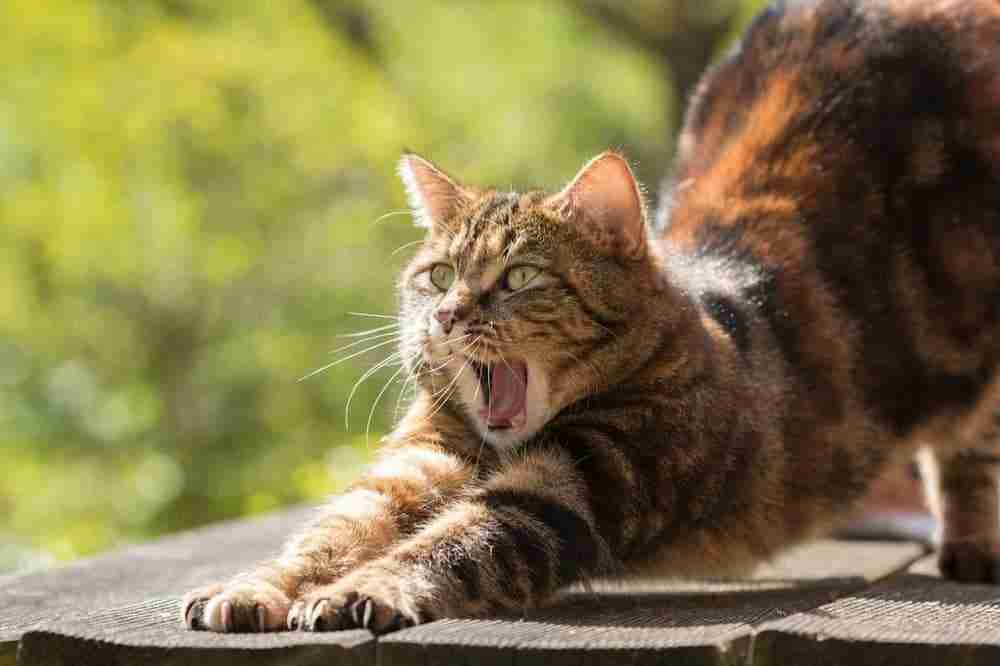Are domestic shorthair cats friendly or aggressive? On the whole, their numbers and their wide geographical spread would indicate that these cats are hugely popular – and this is unlikely to be because they are aggressive!
- What Are Domestic Shorthair Cats?
- Are Domestic Shorthair Cats Smart?
- Do Domestic Shorthair Cats Get Along With Other Cats?
- Do Domestic Shorthair Cats Get Along With Dogs
- Are Domestic Shorthair Cats Good Pets
- Are Domestic Shorthair Cats Friendly
- Why Might A Domestic Shorthair Cat Be Aggressive?
- Final Thoughts
Learn what a domestic shorthair cat is, whether they are smart, good with people and other pets and whether you should have a domestic shorthair in your home!
What Are Domestic Shorthair Cats?
Domestic shorthair cats (DSH) are cats that are from no obvious breed. They are cats that are mixed breed. They have short hair as opposed to long hair – in which case they would have been called domestic longhair cats!
DSH cats can be any color or coat pattern – a domestic shorthair cat can be a tabby, calico, tortoiseshell, bi-color, or solid color cat – they can be black, white with patches, orange, or any set of the standard cat colors – so long as their parentage is not a purebred they are described as a domestic shorthair cat.
Basically, they are your average shorthair barn cat, alley cat, or housecat! In some parts of the world, they are called moggy cats or moggies.
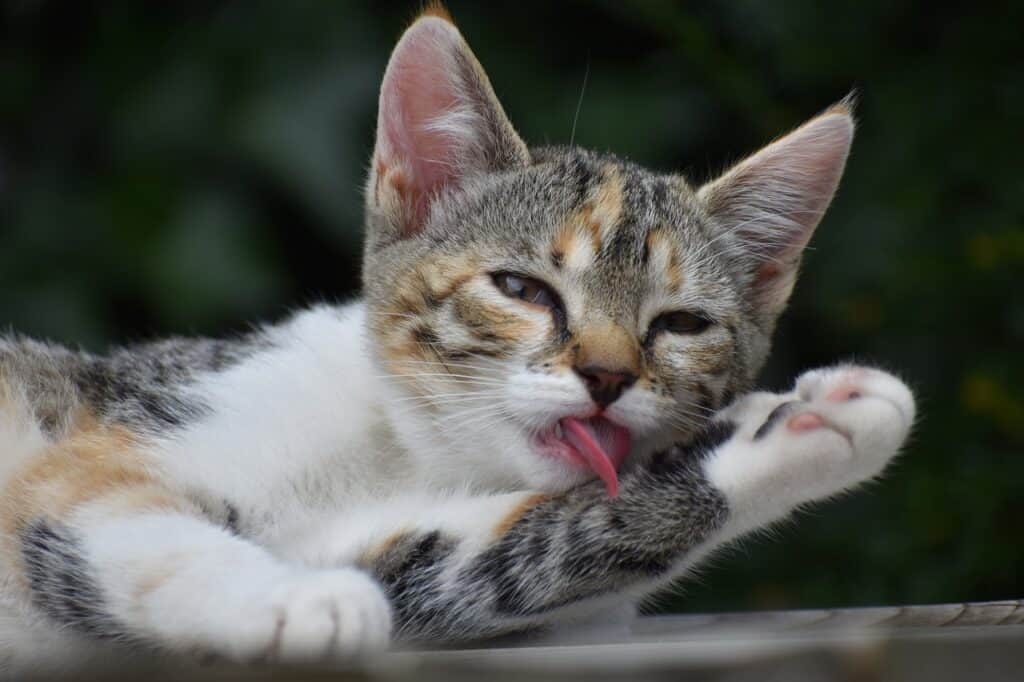
Are Domestic Shorthair Cats Smart?
As a group of animals, these creatures are fundamentally smart. They have learned over time to associate with human settlement and their numbers have risen dramatically compared to their wild counterparts who live in jungles, plains, and in deserts.
They have carved out a niche that works symbiotically with humans – each benefiting from the other!
Some cat breeds are specifically recognized as being smart such as the Siamese cat. Domestic shorthairs share some feline genes with these creatures as most of the purebred cats originate and have been bred from domestic shorthairs who exhibited characteristics deemed to be favorable.
However, in some ways, cats are similar to people, and as with people, you get daft individuals and really smart individuals and every type in between! Domestic shorthair cats are the same – some can be daft, take unreasonable risks and behave without learning and yet others can seem to have an innate understanding and complex problem-solving skills!
Take the example of the cat that uses a puzzle feed bowl. These feeding bowls require some complex problem-solving skills to access food. Some cats can understand, process, and solve the issue relatively quickly and yet others simply cannot make the mental leap to get the food! Often they need to watch another cat in order to learn how to access the food – they are unable to enquire and solve the problem themselves – but they can learn by copying others!
Domestic shorthair cats are undoubtedly smart as a group having befriended people, but individual standards of smartness vary from cat to cat!
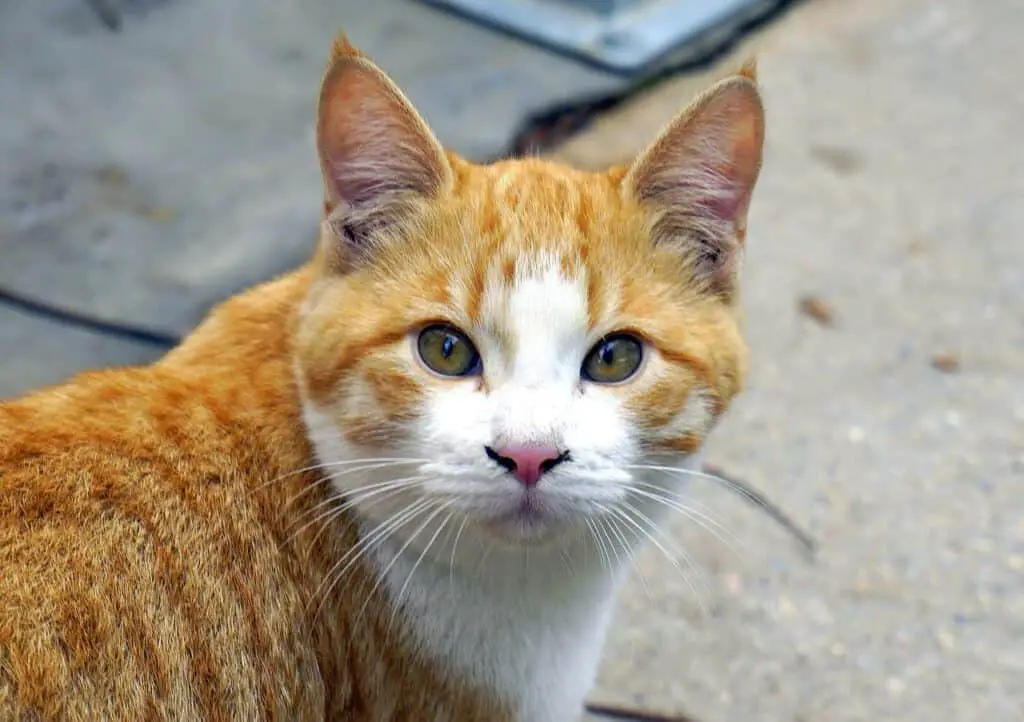
Do Domestic Shorthair Cats Get Along With Other Cats?
Domestic Shorthairs can live in feral colonies in the wild or in multi-cat homes. Domestic shorthair cats can bond with other cats. Often these situations are complex.
Feral colonies form in the wild when cats have adequate access to resources and do not have to compete for survival. Colonies are often matriarchal hierarchies with males leaving and living in their own groups and individually once they hit puberty. The mother, daughters, and younger offspring of both will form the colony. Where resources are not adequate, cats will live individually and compete for territory and resources.
Cats can live in homes together even if they are not related and are of differing sexes. They may get along as companions in a similar way to that in which people befriend one another or they can live individually in multi-cat homes, each cat claiming an area of the home as territory – even if this is passing momentary ownership that swaps and alternates over time.
If adequate resources are provided then it is possible for unrelated cats to live together. Sometimes they will form bonds, although this happens more often with litter mates and cats who have socialized together since kittenhood or have been introduced to an adult cat during kittenhood.
It is clear that most of the time cats can get along – although this does not mean they will all bond together or form alliances – some will tolerate and timeshare territory with other cats in the same home.
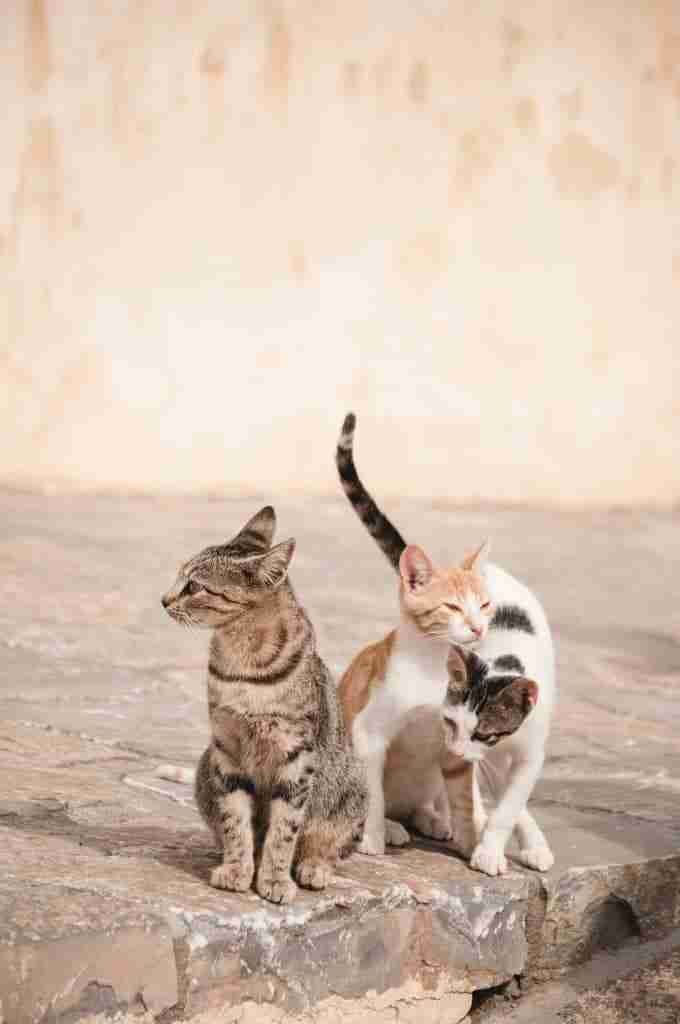
Do Domestic Shorthair Cats Get Along With Dogs
A domestic shorthair cat that has been socialized with dogs present in the home may not have a problem with a dog. Many cats that are introduced to a home with a dog as kittens, accept the dog as a member of the household, and the dog, unthreatened by such a small creature generally adapts to the cat. In such instances, cats and dogs can bond as friends but these instances are unusual – mostly they just tolerate and avoid one another!
Trying to introduce a mature cat or any cat that has not been socialized to dogs at an early age to a dog is unlikely to be as successful. Many such cats will require months to get used to a dog if at all possible and then the endpoint is often mutual acceptance and avoidance. They will orbit within each other’s circle but are unlikely to sleep together, eat together, or spend prolonged time together.
Depending on the energy displayed by both animals, a kitten-to-dog introduction is usually the most likely successful scenario. Introducing older cats can take time and in some instances, if the dog is simply too curious and playful or the cat too timid then they may never be able to get along.
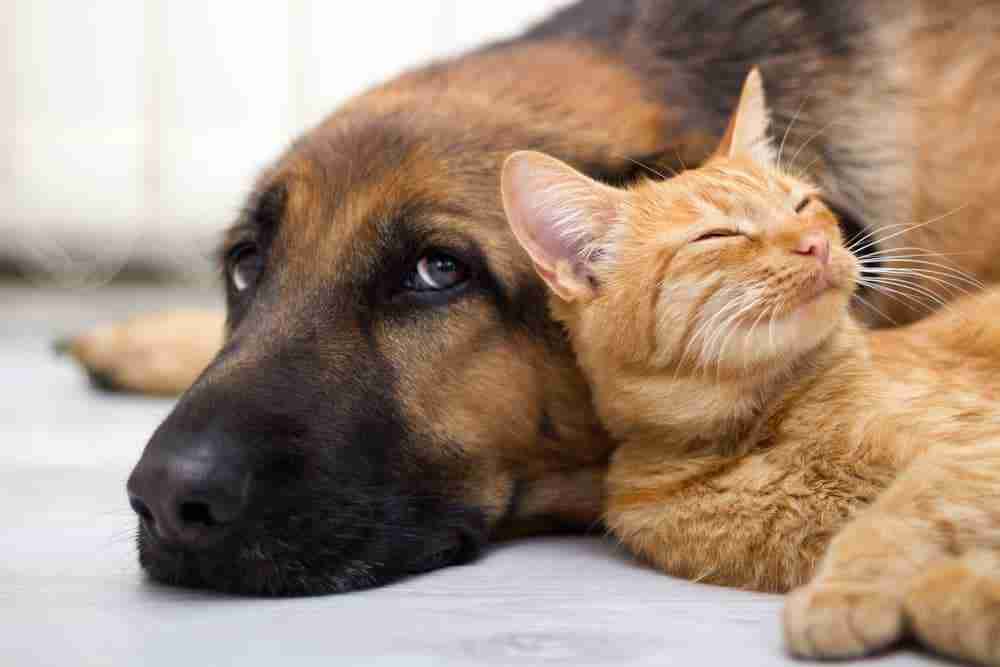
Are Domestic Shorthair Cats Good Pets
Domestic shorthair cats that have been socialized to people from a young age make good pets.
Domestic shorthair cats that are feral – having never been socialized with people – do not make good pets and often they have to be neutered and returned to the streets or re-homed as barn cats. Feral cats simply do not bond with humans and find interaction too stressful. They are essentially wild and cannot be domesticated.
Domestic shorthair cats that have been handled as kittens and have grown up around people, other cats, and other pets make great pets.
They all have different personalities and temperaments but they will often show some level of affection and playfulness around people and will become attached to their people – greeting their family people when they come home from work or waiting by doors for them, vocalizing when they return from patrol and both giving and demanding attention from time to time to maintain bonds.

Are Domestic Shorthair Cats Friendly
Domestic shorthair cats that have been socialized with people and other animals are friendly to those they know or consider part of their household and are often happy to befriend other people.
The level of friendliness will often be down to the cat’s individual personality and experience. It is often said that orange tabby cats are more affectionate than other cats.
Scientists believe that this is actually a result of orange tabby cats being genetically larger domestic shorthair cats than cats of other colors. The size advantage makes them more dominant over other cats which in turn makes these cats less risk averse in general life. This lack of fear translates into a friendly, approachable, and confident cat!
There are believed to be 600 million domestic cats in the world of which 95% are domestic shorthair cats! In the USA 30% of homes have a domestic cat! You simply do not get that popular or widespread without being friendly! If these cats were considered aggressive – like a tiger – they simply would not achieve the numbers or number of households that they do!
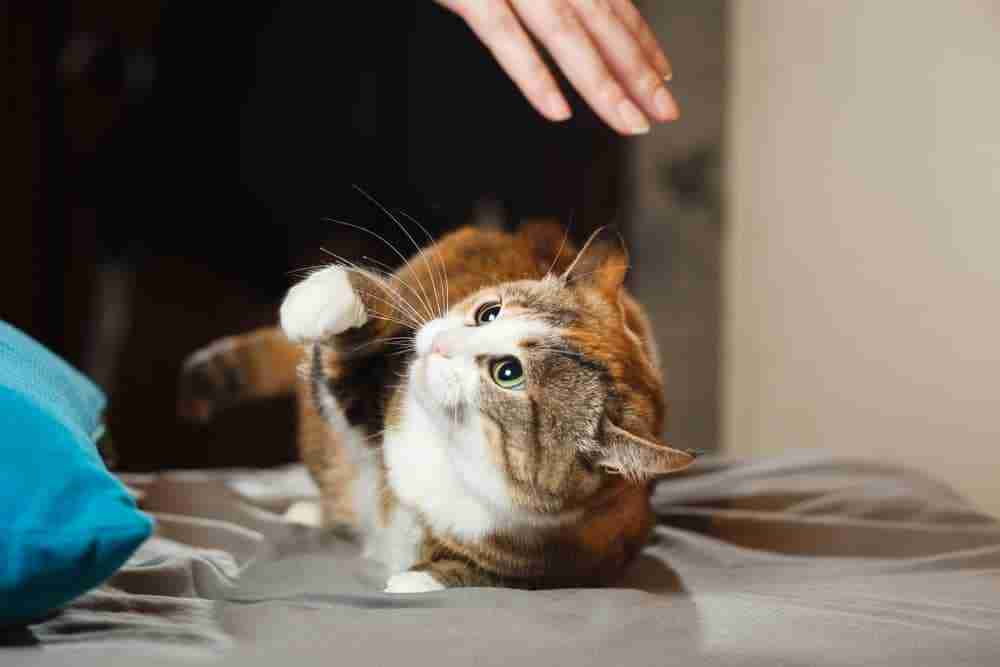
Why Might A Domestic Shorthair Cat Be Aggressive?
If you have a domestic shorthair cat that is aggressive it may be a feral cat that has not been domesticated.
If your own moggy is showing signs of aggression then they may be experiencing a health issue – pain, illness, and injury can make them feel vulnerable causing an aggressive response – or they may have a territorial issue or feel threatened.
All cats need some space of their own and will act aggressively if they are not handled and approached on their own terms or terms with which they feel comfortable.
Unlike dogs, most cats reserve a degree of independence as they have not been domesticated for as long as dogs and still carry some of those wild genes that allow them to live independently and wildly if required. Remember, cats are wild if they are not socialized at an early age…
Final Thoughts
Domestic shorthair cats when socialized from a young age are generally friendly cats who make very good pets. Their numbers have exploded worldwide and they live alongside us in our homes in tremendous numbers.
Many people have domestic shorthair cats that are one of the family, and are able to get along with other cats and pets – but beware, although they are friendly, affectionate, and approachable they are also independently spirited and will let you know when they no longer want your attention or company!
Many are very loyal companions who will make your home theirs and become one of the family.
